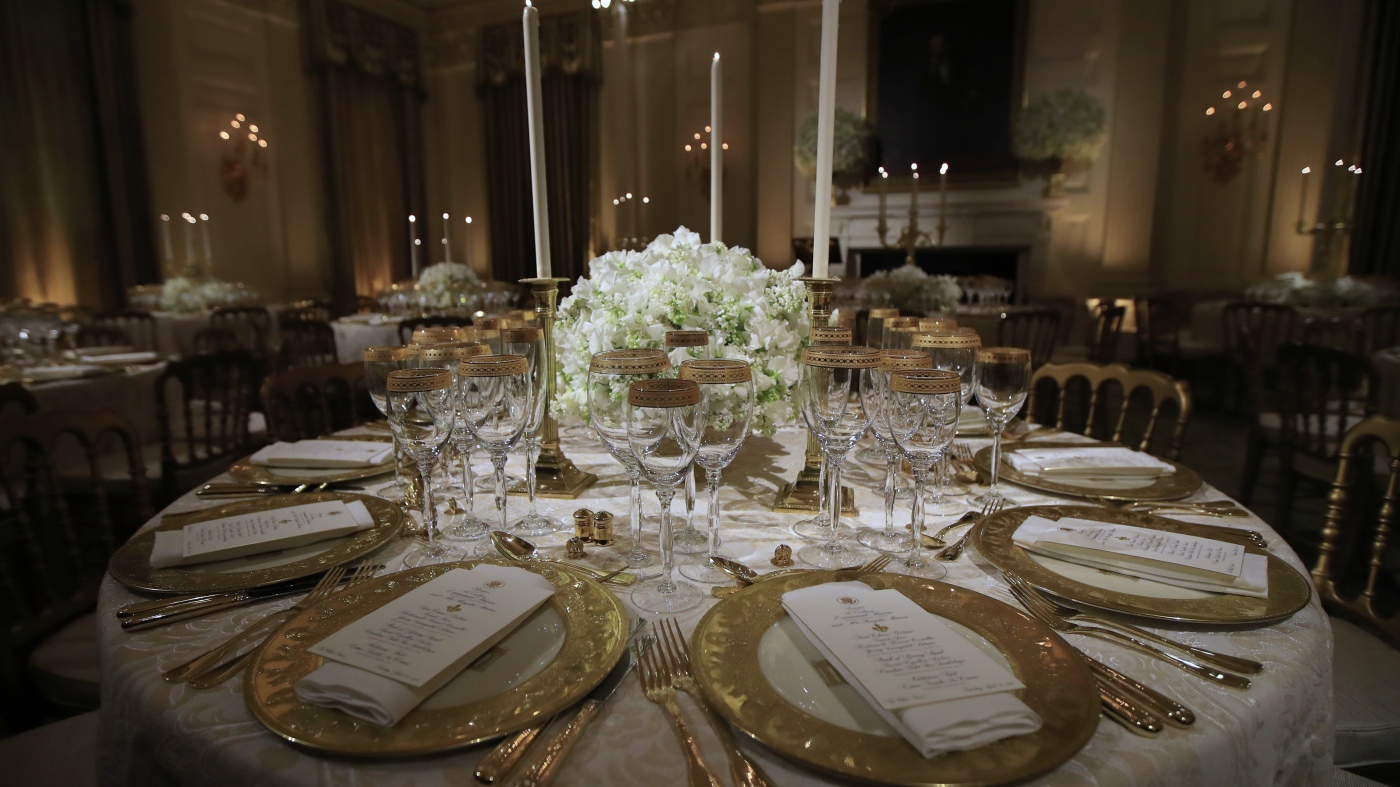The South Carolina Capitol grounds will soon include a statue of Robert Smalls, a formerly enslaved Civil War hero, among the statues of five white men, most with ties to the Civil War or Jim Crow.
ARI SHAPIRO, HOST:
South Carolina will soon raise a statue of Robert Smalls, a Black Civil War hero who fought against the Confederacy. It comes a decade after the state lowered the Confederate battle flag from its Capitol complex. South Carolina Public Radio's Maayan Schechter has the story.
MAAYAN SCHECHTER, BYLINE: It doesn't take long to make it around the Statehouse grounds, right in the downtown Columbia Center, and it doesn't take long to notice that the complex's standalone statues, celebrating their legacies, are all of white men, most with ties to either the Civil War or its legacy of the Jim Crow South. State lawmaker Brandon Cox wanted to change that history. After months of meetings, he was moved to tears.
BRANDON COX: It's just awesome.
SCHECHTER: You were pretty emotional in there.
COX: Yeah.
SCHECHTER: But more than 100 years after his death, Robert Smalls, who was a Civil War hero, an educator and a South Carolina politician, will be honored with that statue. Cox, a white Republican, worked with his house colleague Jermaine Johnson, a Black Democrat, to finally get the statue off the ground. They selected an artist, Basil Watson, and they picked a prime location close to the Capitol's visitors entrance. It's a big deal, Johnson says. He says, it might not resonate with the public until it goes up, a timeline that hinges on fundraising.
JERMAINE JOHNSON: So, I mean, it's just a fantastic thing for young Black kids and kids in general, to be able to come here and see that all men were created equal, like our Constitution indicates.
SCHECHTER: Few historical stories match the span of Smalls' life. That's how Bernard Powers puts it. He's professor emeritus at the College of Charleston and founding director of the Center for the Study of Slavery in Charleston.
BERNARD POWERS: You can tell the whole story of Robert Smalls, with no fear of being embarrassed by it.
SCHECHTER: That story begins in 1839, when Smalls was born into slavery on the coast in Beaufort. In his early 20s, Smalls and other enslaved crew members commandeered a Confederate warship. Smalls, in a captain hat and using Confederate hand signals, delivered the ship to the Union Navy and his crew to their freedom.
POWERS: And of course, the captain got on board, and, my goodness, he could not have been more surprised to find this ship captained and crewed by an all-slave crew. And Robert Smalls says to him something like, sir, I think that Uncle Abe Lincoln will find use of some of these cannons that we have on board.
SCHECHTER: Smalls' story doesn't end there. He bought the house he was enslaved in. He fought for the rights of African Americans and public education. He helped write the Construction-era State Constitution in 1868, and he served in the halls of the South Carolina State House and Congress.
TONYA MATTHEWS: It's incredible. I mean, his story really does seem like an urban legend.
SCHECHTER: Tanya Matthews is president and CEO of the International African American Museum in Charleston.
MATTHEWS: And I think that extraordinary times create extraordinary people.
SCHECHTER: The unreal story is a story of South Carolina, Matthews says.
MATTHEWS: We have stories that have shown again and again and again that we can move, we can change, we can grow. Sometimes it's more painful than others, but it does happen here. And so I think that we can be a model of inspiration for ourselves as well as for the nation as a whole.
SCHECHTER: State Representative Cox can trace his family's South Carolina roots all the way to the 1700s. He admits he didn't know who Robert Smalls was before he pushed for the bill to install his statue on the Capitol grounds. He says it's become one of the most important actions he's taken as a lawmaker.
COX: We've made some history. That's emotional for me.
SCHECHTER: It's a story, he says, that can make any South Carolinian proud. For NPR News, I'm Maayan Schechter in Columbia, South Carolina.
Copyright © 2025 NPR. All rights reserved. Visit our website terms of use and permissions pages at www.npr.org for further information.
Accuracy and availability of NPR transcripts may vary. Transcript text may be revised to correct errors or match updates to audio. Audio on npr.org may be edited after its original broadcast or publication. The authoritative record of NPR’s programming is the audio record.

 3 months ago
37
3 months ago
37














































